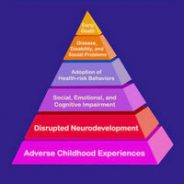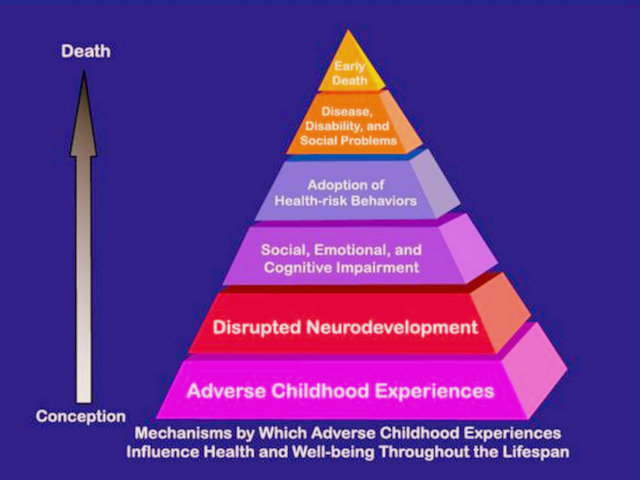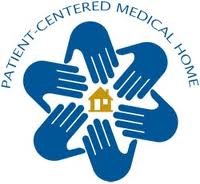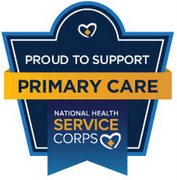GNOC Banquet
Gerhardt Neighborhood Outreach Center
Annual Banquet
November 2nd, 6-8 pm
at Shadow Lake
GNOC is our partner in ministry on Rochester’s Northeast Side where our Joy Family Medicine office is located.
Help us support our brothers and sisters!

“Fat but Fit”?
A Healthy Heart Needs a Normal Body Weight
In this week’s Medscape advisor primary care news story, we’re asking the question: Is “fat but fit” a myth? A new study challenges the idea of “healthy obesity.”
An analysis of more than half a million people in Europe with 12 years of follow-up showed that compared with normal-weight individuals, overweight and obese patients had a higher risk for heart attacks, regardless of their metabolic health (lipids, glucose, and blood pressure).
This is robust evidence against the notion of healthy obesity, supporting the idea that maintaining a normal body weight is a key step toward maintaining a healthy heart.
Dr Arefa Cassoobhoy, a practicing internist, and senior medical director for WebMD. Follow Dr Cassoobhoy on Twitter at @ArefaMD
Slow weight loss
Slowly But Steadily Shedding Pounds Each Week May Be More Beneficial For Long-Term Weight Loss, Study Indicates.
CNN (8/28, Howard) reports research indicates that “slowly but steadily shedding pounds each week can be more beneficial for long-term weight loss than seeing…weight drastically drop, only to rise again.”
The findings were published online in the journal Obesity. Also covering the story are the New York Daily News (8/28, Dziemianowicz), Forbes (8/28, Lee), and HealthDay (8/28, Dallas).
CCHF 2017 Conference
CCHF Conference Recap
Thanks to all who attended, and to all who shared their experiences and ideas. We have already started working on CCHF Conference 2018. We are putting together a prayer team now for next year’s conference. Prayer is our priority, and prayer makes a huge difference as we plan and produce the conference. We want Christ at the center throughout every aspect. He is the Alpha and Omega, and we want to honor Him as such in the conference.
If you are willing to be part of the prayer team, let us know by dropping us an email at: info@cchfmail.org
Here are just a few comments from attendees:
- “Thanks so much for all the work you did to make the conference so inspiring!! The location was wonderful!
- “Our team was very grateful for the quality childcare for our 2 little travelers. It allowed our team member to come when she had no other options for childcare. Our team came away inspired, more comfortable in expressing our faith in the context of our clinic and advocacy activities. We were hosted as family, and it felt good to know we are not on an island–but have faith-filled brothers and sisters engaged in similar ministries across the country.”
- “I just recently became aware of CCHF before I signed up for the conference, and honestly hadn’t taken the time to look too much into the fellowship before going.Prior to this conference I was unaware of how many other Christian health ministries were out there and often felt alone in my ministry- this conference and fellowship has been an amazing source of hope and strength for me. I felt so at home with everyone- brothers and sisters in Christ all focused on the same mission. Thank you!”
Did you miss this year’s conference? Or maybe you were there but want to revisit a helpful session you attended? Listen to the CCHF Conference 2017 audio here.
Below is a recap video of some of the best moments at this year’s conference!
Help for Obesity
Eating Large Meals Earlier In The Day May Help Prevent Obesity
On the front of its Science Times Section, the New York Times (8/22, D1, Rabin, Subscription Publication) reports a recent review of 50,000 adult Seventh Day Adventists over seven years offers the latest evidence that “we should front-load our calories early in the day to jump-start our metabolisms and prevent obesity, starting with a robust breakfast and tapering off to a smaller lunch and light supper, or no supper at all.”
In the article, Mark P. Mattson, chief of the National Institute on Aging’s laboratory of neurosciences, said, “Twenty years of work on animals shows that compared to those that have constant access to food, those on intermittent fasting diets live longer, their brains function better as they get older and the nerve cells respond to the period of going without food by increasing their ability to cope with stress.” The findings were published in the Journal of Nutrition.
Welcome Eric Kerr, PA
Please join us
in welcoming Eric Kerr as a much-needed Physician Assistant (PA) addition our provider staff!
Eric grew up in the Massachusetts and southern New Hampshire region. After high-school he received training to be an airplane mechanic in the US Marine Corp where he served for 4 years before going on to complete his medical training.
While taking college classes, he provided complete care as a live-in room mate to a young man with severe developmental disabilities. Eric was a founding member of the Direct Support Professional Association of New Hampshire and actively involved in advocating for the rights of developmentally disabled individuals.
He also worked as a nationally certified athletic trainer with a passion for encouraging and educating people about their own health and wellness. He completed a Bachelors of Science degree in Biology and a Masters of Science degree in Physician Assistant Studies – earning magna cum laude for both degrees. His medical training was completed at Massachusetts College of Pharmacy and Health Sciences.
He has been a practicing PA for 13 years now and has experience in surgery, Emergency Medicine, Cardiology, and ENT specialties. He has a blended family with a total of 7 children and is now a grandfather to one baby – Alanna.
Eric is passionate about Gods word, serving others and his family.
Moderate alcohol risky
Consuming Moderate Amounts Of Alcohol May Be Associated With Changes In Brain Structure, Increased Risk Of Worsening Brain Function.
ABC World News Tonight (6/6, story 8, 0:20, Muir) reported that research suggests “moderate drinking may be riskier than previously” believed.
USA Today (6/6, Painter) reports that investigators found “moderate drinkers were more likely than abstainers or light drinkers to develop worrisome brain changes that might signal eventual memory loss.” Additionally, “they…were more likely to show rapid slippage on a language test, though not on several other cognitive tests.” The findings were published online June 6 in the BMJ.
Reuters (6/6, Kelland) reports that investigators came to these conclusions after analyzing “data on weekly alcohol intake and cognitive performance measured repeatedly over 30 years between 1985 and 2015 for 550 healthy” people “with an average age of 43 at the start of the study.” Reuters adds, “Brain function tests were carried out at regular intervals, and at the end of the study participants were given a MRI brain scan.” Also covering the story are CNN (6/6, Christensen) and HealthDay (6/6, Norton).
Adverse Childhood Experiences
Childhood abuse raises the risk of serious mental and physical problems later
Research has shown that childhood trauma, ranging from parents’ divorce to alcoholism in the home, increases the odds of heart disease, stroke, depression, suicide, diabetes, lung diseases, alcoholism and liver disease later in life.
It also increases risky health behaviors like smoking and having a large number of sexual partners. And it contributes to “low life potential,” according to the U.S. Centers for Disease Control.
And one more thing: those traumatized as children die earlier.
Childhood Trauma: Too Much to Handle, Too Soon
From 1995 to 1997, the health maintenance organization Kaiser Permanente in California conducted a survey of more than 17,000 of its patients.
The “Adverse Childhood Experiences” or ACE study asked respondents to indicate whether they had suffered any of the following during their childhood:
- Emotional abuse
- Physical abuse
- Sexual abuse
- Mother treated violently
- Household substance abuse
- Mental illness in household
- Parental separation or divorce
- Household member in prison
A portion of the respondents were also asked about emotional and physical neglect. The most common experience reported was physical abuse (28 percent), followed by household substance abuse (nearly 27 percent).
The more Adverse Childhood Experiences a person reported, the higher the risk of experiencing poor psychological and physical health later
Can you relate to any of this?
If so, please open up with one of our health providers. We can help you. Click here to read more.
Effective Handwashing
Washing Hands With Cold Or Lukewarm Water May Be Just As Effective As Using Hot Water, Study Suggests.
TIME (6/1, MacMillan) reports that washing hands “with cold or lukewarm water will work just as well as hot water to remove bacteria, according to a new study published in the Journal of Food Protection.”
Handwashing experiments conducted with 21 volunteers revealed “no significant difference in cleaning power between water that was 60, 79 or 100 degrees Fahrenheit.” Investigators also “found that lathering hands for just 10 seconds was sufficient to remove germs.”
No Juice for Babies
New Guidelines Say Children Under One Year Old Should Not Be Given Fruit Juice.
The New York Times “Well” blog reports that the American Academy of Pediatrics (AAP) is “advising parents to stop giving fruit juice to children in the first year of life, saying the drink is not as healthful as many parents think.”
The AAP has “toughened its stance against juice, recommending that the drink be banned entirely from a baby’s diet during the first year.” Meanwhile, “The new report, published online in Pediatrics, also advised restricting fruit juice to four ounces daily for 1- to 3-year-olds, and six ounces a day for 4- to 6-year-olds.”
The NPR “Shots” blog reports Steven Abrams, an author of the guidelines, says, “We want to reinforce that the most recent evidence supports that fruit juice should be a limited part of the diet of children.” Also covering the story are CNN and MedPage Today.













 I'm a happy person who loves getting to know and being able to help people of all ages. I connect with little children (and the little child in most adults) almost immediately. Sharing the joys and trials of relationships, pregnancy and delivery, and family life are the things about family practice that really light my fire. I've found that having a sense of humor and seeing God's love at work can see us through some of life's most difficult times, if we can keep the faith and hang in there together.
I'm a happy person who loves getting to know and being able to help people of all ages. I connect with little children (and the little child in most adults) almost immediately. Sharing the joys and trials of relationships, pregnancy and delivery, and family life are the things about family practice that really light my fire. I've found that having a sense of humor and seeing God's love at work can see us through some of life's most difficult times, if we can keep the faith and hang in there together. 


